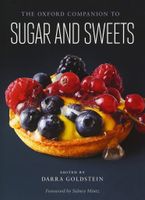Advertisement
The Empire
Published 2015
Following the Counter-Reformation, the region was militantly Catholic. The church’s liturgical calendar specified what one could eat and when it could be eaten. With all the fast days, meat was forbidden almost one day in three. In the strictest interpretation of the rules, eggs and dairy were also forbidden, though in practice this level of abstemiousness was not always observed. On meatless days Central European cooks often turned to flour-based foods: noodles, dumplings, pancakes, and leavened baked goods. Many of these were sweetened initially with fruit, fresh or preserved, and later with beet sugar as it became affordable. Out of this practice came the vast repertoire of Mehlspeisen, a term that now translates as “pastry” but once encompassed any flour-based dish, whether sweet or savory. See mehlspeise.


